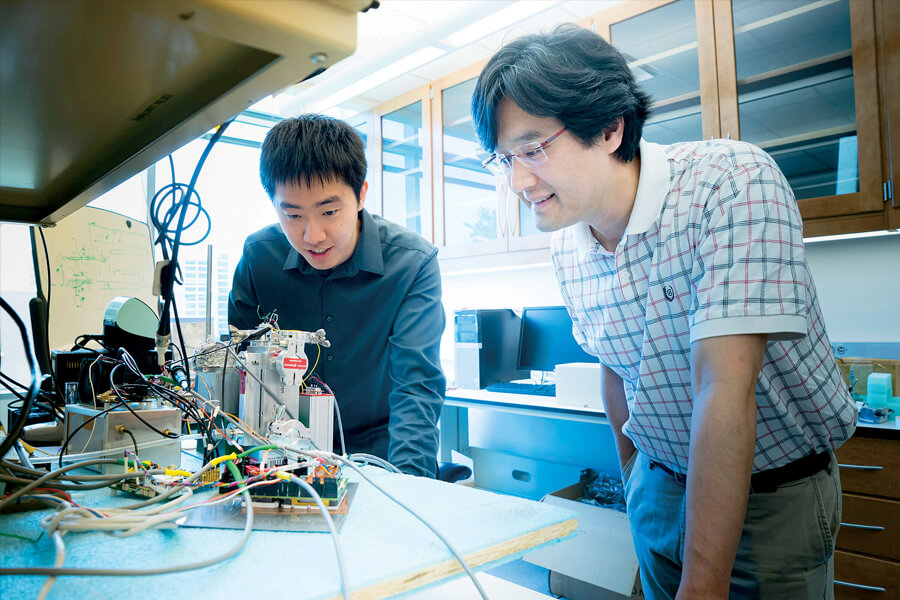Spectrometers Could Improve Point-of-care Patient Diagnosis
| Author: | Lyna Landis |
|---|---|
| Magazine Section: | Strategic Growth Initiative |
| College or School: | CoE |
| Article Type: | Article |

PURSPEC also has locations in Beijing and Shanghai.
The miniature spectrometers developed by PURSPEC can be used to identify the type and amount of chemicals present in blood and urine samples in place of conventional mass spectrometry.
“Being able to check levels at the point of care instead of sending samples to a centralized location saves valuable time and enables physicians to make a diagnosis or determine a course of treatment more quickly,” says Zheng Ouyang, president and founder of PURSPEC. “The reduced time means physicians can get answers promptly and move treatment to the next level so the patient receives more expedient care, which can be critical in some circumstances.”
Ouyang is an adjunct professor at Weldon School of Biomedical Engineering at Purdue and a professor at Tsinghua University in Beijing.
Ouyang says the spectrometers developed by PURSPEC have other benefits as well. “PURSPEC spectrometers can have a tremendous impact on the level of care that a patient receives. After the doctor prescribes the standard dosage for the medication, the pharmacist administers the dosage and waits 30 minutes for test results. Once levels are tested to ensure that the patient response is optimal, dosage can be adjusted if needed.”
Ouyang and Graham Cooks, the Henry B. Hass Distinguished Professor of Analytical Chemistry in Purdue’s Department of Chemistry, have developed and licensed several mass spectrometry technologies through the Purdue Research Foundation’s Office of Technology Commercialization. PURSPEC has been working with Professor Cooks on intraoperative assessment that facilitates the surgeon’s decision making for tumor removal.